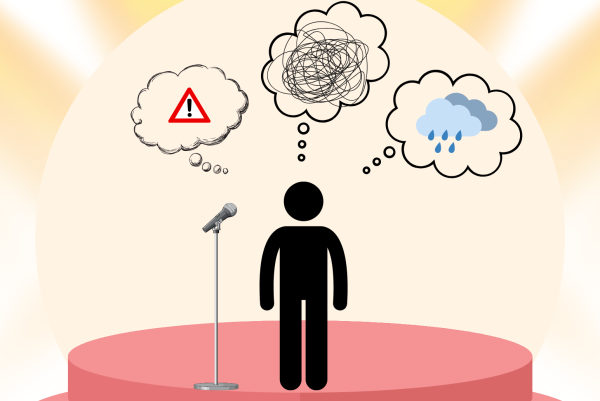Column: Serena Williams challenges status quo
Photo credit: David Shopland
Serena Williams throws a ball before serving at the U.S. Open. Williams and the umpire argued multiple times throughout the match. Photo used with permission from David Shopland.
Serena Williams, synonymous with the greatest American tennis player in history, has revolutionized professional tennis for women. Her many awards and accolades include being ranked No. 1 in singles on five separate occasions by the Women’s Tennis Association and having the most Grand Slam titles in singles, doubles and mixed doubles combined among active players. However, many argue that her impact on women, specifically women of color, is more record-breaking than any honor or recognition she has ever received.
During the U.S. Open Finals, Williams was involved in a heated argument with the umpire that resulted in Williams being fined $17,000. During the match, umpire Carlos Ramos gave Williams a code violation warning for coaching after ruling that her coach gave her illegal signals from the stands, which Williams argued was simply an innocent thumbs-up.
Following the altercation, she received a point penalty for breaking her racket and a game penalty for calling the umpire “a thief.” The intense outburst left spectators and critics divided.
At the press conference following her loss, Williams explained her outburst was due to the umpire’s “sexist” actions for penalizing her because she called him a thief, whereas “other men” have called umpires more degrading and aggressive terms.
These words fueled the outrage of many who saw how blatantly society limits a woman by not allowing her to stand up for herself.
Williams passionately remarked she’s “fighting for women’s rights and women’s equality” on and off the court. Her goal is to have women be equally recognized, treated and respected relative to their male counterparts.
In support of Williams, Billie Jean King, the former world No. 1-ranked tennis player and founder of the Women’s Tennis Association, tweeted “When a woman is emotional, she’s ‘hysterical’ and she’s penalized for it. When a man does the same, he’s ‘outspoken’ and there are no repercussions.”
This comment was met with further controversy. Some argued that Williams was overdramatic, cried like a “sore loser,” and stole Naomi Osaka’s special moment of winning her first Grand Slam.
And yes, Williams was arguably heated during the match, but the penalization felt much more like an attack on her integrity, not a minor misbehavior.
She showed her true character immediately following the match by telling Osaka how “proud” she was and to understand that the jeers and booing were not aimed at her. Yet spectators continue to brutally heckle Williams, although she was merely standing up for herself and the female gender.
This was clearly seen when a cartoonist vilely portrayed Williams as a stereotypical “angry black woman” in the middle of a full-on tantrum with full lips and a pacifier. The racist caricature sparked outrage from both sides. Yet the fact that the cartoon was even drawn and published only reaffirms the prejudiced belief that emotional women are hysterical — and even worse, that emotional women of color can become primitive, uncivilized and even animalistic.
Williams has had to combat this attitude throughout her entire career. In an open letter to the Guardian, Williams used her platform to deliver an empowering message.
“What others marked as flaws or disadvantages…I embraced as fuel for my success. I never let anything or anyone define me or my potential. I controlled my future,” she wrote.
Her courage to push back against prejudice and her fight for equality has and will continue to inspire young girls for years to come.

Caitlin Chen joined the Oracle as a columnist in 2018. Her column focuses on the Archer athletic program, as well as sports outside of the Archer community....












